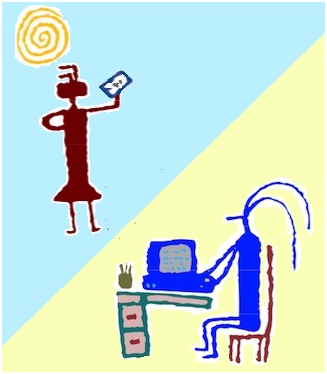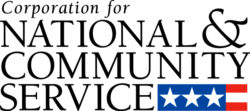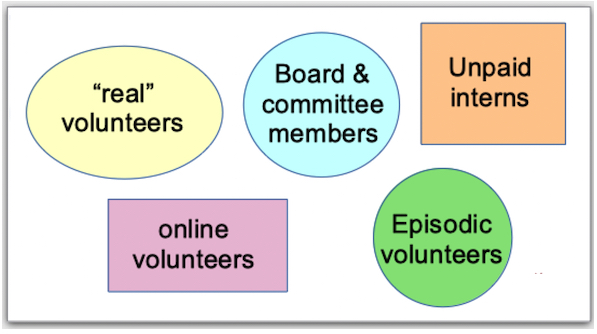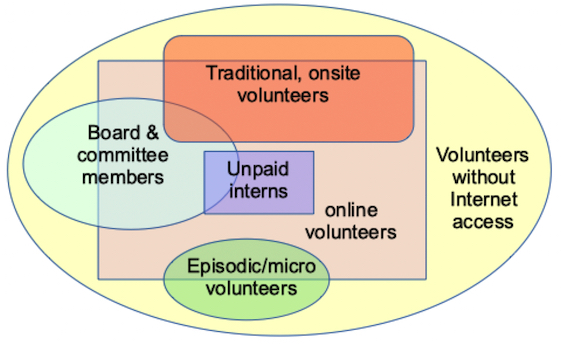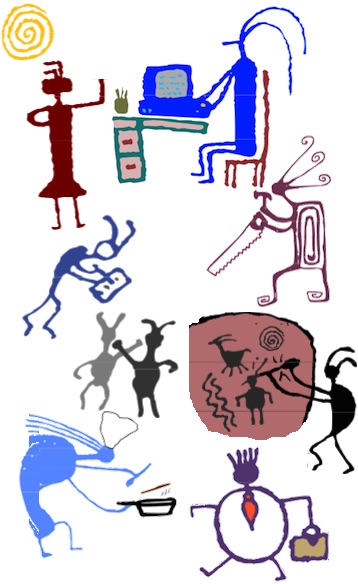
When it comes to talking about volunteer engagement, I am just not at all about bunnies and fluff and warm fuzzies and hugs. I don’t like talking about volunteers as nice but, rather, as necessary, for a whole range of reasons that have nothing to do with money. I think talking about volunteers in terms of warm fuzzies devalues both what volunteers do and what the nonprofits and other programs they support do.
I also cringe over the idea of entitlement regarding volunteers: those people who believe that their desire to do a certain kind of volunteering should be all they need to get to do that volunteering, regardless of what people actually need.
I admit it: I’m not very kind in response to such people. Especially lately.
There are statements and attitudes about volunteering that make my blood boil. They contribute to volunteer engagement not being taken seriously and not being financially supported, and in some cases, to a patriarchal, colonialist view of volunteering, and excuse for volunteers for having that view.
Here are some of those statements that send me over the edge:
- Volunteering is great, but it’s not serious, like a job. Volunteers can never do something as well as someone that’s paid to do that thing. they can never be experts.
- People can volunteer whenever they might have some time and solve homelessness, create economic opportunities leading to equity, stop climate change, and solve other serious social and environmental issues. Volunteering is something you do when you don’t really have anything else to do or when you feel like doing it.
- I feel like I would be good at counseling people, because I do it with friends / at my bartending job, so I should get to counsel people as a volunteer, but I don’t want to have to go through a bunch of training.
- I like animals, so I should get to volunteer with wildlife, like elephants and baby orphaned tigers.
- My company’s employees want to work with kids, so the local school should let us host a pizza party for the sixth graders this Friday, from noon to 1.
- People in poor communities wish people with really “good hearts” from other places will come to their communities and do things local people would like to do themselves: build schools, care for orphaned children, build wells, care for wildlife, etc. And those people in those poor communities want to give these foreign volunteers free housing and these people are so grateful that these volunteers come there, even for just a week or two.
- Volunteers are cost-free.
I read comments like these all the time on Quora and Reddit. Here’s a perfect example of such. I’ve edited for brevity (the original post is much longer):
I am curious if working for nonprofits or volunteering can become be lucrative at all. I wish I could just live off tips or donations from people that I’ve made their lives better.
I spend a lot of time just talking to people about their problems. Genuinely listening and focusing on them, trying to guide or nurture towards where they are looking to grow, or nudge them towards solutions that are just out of reach. I spend a few minutes a day just answering posts in FB vent groups or lonely people. Just generally check in with people and see how I can make their day better.
I always liked the sense of freedom from volunteering. Especially in a situation where you can work as much or as little as you want. Come in whenever, or on a loose schedule, etc.
Is there low pressure, humanistic jobs, volunteer work, or non profit work that would support a minimalist lifestyle but provide enough to not stagnate? I’m not afraid of labor, but would want to do it on my own terms.
The privilege in this post… the vanity… the stereotypes about not just volunteering but about the help people in crisis need, that it’s all something you can do whenever you might feel like it, and just do it, ’cause, you know, you have a good heart and you really “get” people… yes, my blood is boiling.
While I absolutely believe volunteering can be fun, that it can be informal, and that it can be episodic (one-time event, no further obligation), I also believe volunteering should be something that has some sort of actual impact for the organization, that it should serve the organization and its mission primirarily, and that it shouldn’t be mainly about giving a volunteer a feel-good “look, I helped!” experience. While I believe volunteers can have great ideas about what volunteers should do – virtual volunteering has been driven mostly by volunteers, in fact – I also believe that the final say regarding volunteer engagement is always what the organization and its clients need.
I also believe volunteering, even for just a few hours, is a real commitment, because the issues addressed by volunteer are real, sometimes even urgent, issues. Come in whenever you might feel like it? I would fire volunteers for that. It’s profoundly disrespectful to the causes nonprofits attempt to address.
The work of nonprofits is serious. That work addresses homelessness, it helps the environment, it helps people experiencing domestic violence, it helps communities with a range of quality of life issues, it helps people recover from disasters and on and on. It is not for “whenever I might feel like it because, you know, freedom!” Volunteering is not for the cavalier. It’s not for photos for your Instagram page.
My advice to the person I quoted above? Maybe doing some episodic volunteering, like cleaning up a beach – but, you know, only if you might maybe feel like it.
I’m tired.
Also see:
- Nope, volunteering is not always inherently “good”.
- Vanity Volunteering: all about the volunteer.
- Isn’t my good heart & desire enough to help abroad?
- Volunteering to help your own mental health.
- More Than Me scandal in Liberia: a lesson to all who “just want to help.”
- “But I wanted to help POOR people…”
- I’m a volunteer & you should just be GRATEFUL I’m here!
- No more warm, fuzzy language to talk about volunteers!
- Disrupting corporate social responsibility (CSR) programs.
- My volunteer management training videos (all free!).

If you have benefited from this blog or other parts of my web site or my YouTube videos and would like to support the time that went into researching information, developing material, preparing articles, updating pages, etc. (I receive no funding for this work), here is how you can help.



